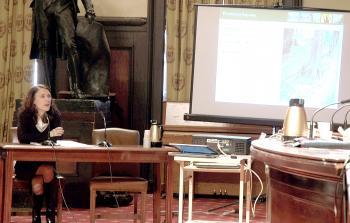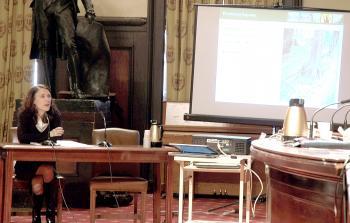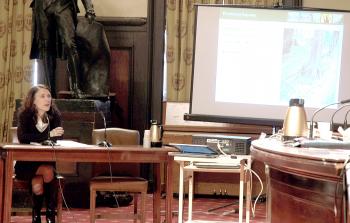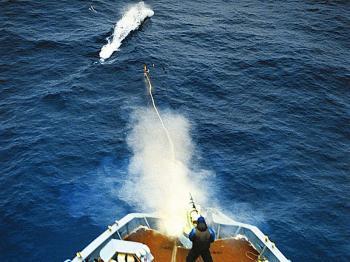So much for paper-free offices: paper consumption has actually increased in the Digital Age, and so has the depletion of valuable natural resources. Although Germans are persistent in recycling used paper, they still buy lots of paper products made from virgin paper—paper not made from recycled material.
The German Federal Environment Ministry, the Federal Environmental Agency and the Federation for Conservation, in conjunction with the Pro-Recycling Paper Business Initiative Alliance, are calling for the increased utilization of recycled paper, in public administration as well as the private sector.
Indeed, the use of recycled paper could make a noteworthy contribution toward saving the environment. Furthermore, the manufacture of recycled paper requires sixty percent less energy and water than the production of virgin paper. As Epoch Times has found out from the Federal Environment Agency, using 1,000 sheets of recycled instead of virgin paper conserves the energy equivalent to powering 70 flat screen computers in an entire workday.
“Making Germany the most resource-efficient economy, according to our vision, could put the attention and emphasis on recycled paper use, due to its many advantages,” said Federal Environment Minister, Sigmar Gabriel. That sounds like a convincing argument. But when offices were asked why they still used virgin paper, the main answer was that printer service technicians or printer vendors discourage the use of recycled paper. Their rationale: the shorter fibers from recycled paper create more dust, which does damage to the printers.
What then, would be the justification for change? The Epoch Times addressed questions to Bernd Krause, of the Federal Environmental Office, to find out the following: could office personnel who purchase office supplies ultimately be held accountable for the higher running costs of machines, just because they have purchased environmentally friendly paper?
‘Blue Angel’ Also Stands for Quality
“Quality recycled paper is very similar to that of virgin paper,” Krause replied, “and certain criteria must be met before we approve of the eco-label, including that standards be met for the intended end-use of the product. The product produced from recycled fibers must be of at least the same quality as the product produced from virgin fibers.”
“If a type of paper has been awarded the ‘Blue Angel’ mark, one can then assume that it is good quality paper?” We wanted to know more.
Krause: “That is correct. ‘Blue Angel’ is a mark of quality.”
Misleading Pro-Environment Logos Used in Marketing
Recycled paper displaying the “Blue Angel” logo is also a guarantee that the highest environmental standards have been met. “Paper with the “Blue Angel” logo is clearly the first choice for the environmentally conscious, because it has been deemed non-toxic and safe for the consumer and the environment. It stands apart from labels such as the FSC (Forest Stewardship Council) or PEFC (Program for Endorsement of Forest Certification Schemes), which only provide information regarding the management of the woodlands during the production process,” says Prof. Dr. Andreas Troge, President of the Federal Environment Agency. There are also many other ”stamps” of approval that can appear on paper goods. These resemble labels that appear to be environmentally friendly, when in fact they are purely promotional logos.
Recycled Paper Will Not Make Your Days Gray
Are there any other perceived drawbacks to the use of recycled paper? Anyone who believes that paper could only come in drab gray has the wrong impression. There are many choices on the market. Many professional office suppliers may not carry all these choices in their personal stock, but oft-times we can turn such a situation around by an increase in demand. There are also suppliers who focus on specializing in long-range office needs. The Pro-Recycling Paper Initiative provides a list of many suppliers with useful information for both office personnel and service technicians.
Read this article in German.







